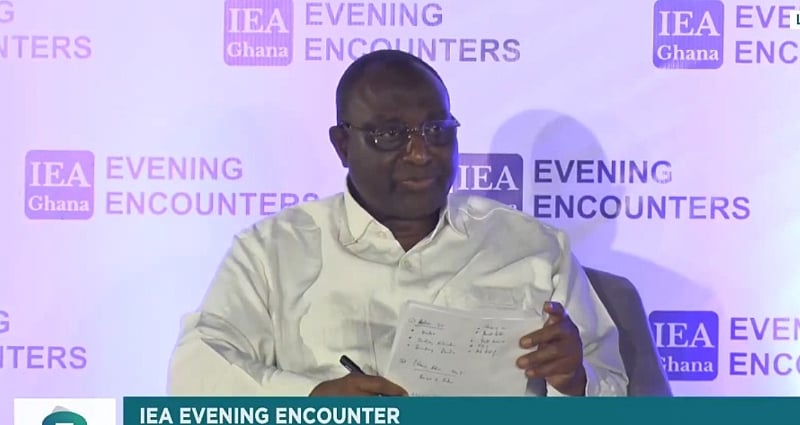In a recent policy unveiling, Alan Kwadwo Kyerematen, the Presidential Candidate for the Alliance for Revolutionary Change, presented a strategic plan aimed at addressing the rampant issue of illegal mining in Ghana, often referred to as galamsey. Kyerematen’s proposals notably diverged from the current government’s methods, which primarily involve the seizure and destruction of mining equipment, such as excavators. He criticized these tactics as ineffective, arguing that simply burning machinery does not offer a sustainable or long-term solution to the illegal mining crisis gripping the nation. Instead, he advocated for a systematic approach that involves the military in the demobilization of mining equipment. This method aims not only to dismantle the illegal activities but also to ensure better management and preservation of mining tools, minimizing waste and potential environmental harm.
Kyerematen’s comprehensive plan is encapsulated within a 10-point blueprint designed to combat galamsey more effectively. Among the key measures he proposed is a one-year moratorium on all small-scale and community mining activities. This suspension is intended to create an opportunity for robust regulation and the restoration of affected environments. By taking a pause on these operations, Kyerematen argues, the Ghanaian government will be better positioned to implement regulatory frameworks that can ensure responsible mining practices in the long run. His strategic approach reflects a shift towards environmental conservation and proper management of natural resources, responding to growing concerns about the ecological damage caused by unregulated mining.
During the Institute of Economic Affairs encounter on October 1, 2024, Kyerematen elaborated on the mechanics of his proposed demobilization strategy. He underscored the need for accountability and inventory management of the demobilized mining machinery. Kyerematen articulated that the equipment intended for demobilization would not only need to be inventoried but also properly stored and preserved. He believes these steps are crucial to ensuring that once mining activities are resumed, there is a clear understanding of the available resources, and thus, can prevent a repeat of the unsustainable practices seen prior. The emphasis on careful management underscores his commitment to maintaining oversight and regulatory compliance in the mining sector.
Kyerematen’s critique of the current government’s approach indicates a broader frustration with what he sees as a failure to adequately address the underlying causes of illegal mining. By asserting that burning equipment is tantamount to neglecting the core issues of illegal practices, he calls for a reevaluation of strategies that do not just penalize actions but rather seek to reform the sector comprehensively. His vision includes developing frameworks that foster legal mining operations while also supporting the livelihoods of individuals currently engaged in illegal activities. By advocating for practical solutions, Kyerematen seeks to develop a model for responsible mining that respects both economic needs and environmental sustainability.
Moreover, Kyerematen’s plan also highlights the importance of community involvement and the necessity for mining practices to align with local interests. He suggested that engaging local communities and stakeholders would be integral in developing mining regulations that cater to the specific needs and contexts of those directly affected by mining activities. Empowering communities would not only help in regulating illegal mining but also pave the way for sustainable development initiatives that could transform local economies responsibly. This participatory approach exemplifies Kyerematen’s acknowledgment of the complex dynamics at play in the mining sector and the necessity for inclusive policymaking.
In summary, Alan Kwadwo Kyerematen’s ambitious framework to combat illegal mining in Ghana epitomizes a critical shift from punitive to constructive measures. By proposing a military-supervised demobilization of mining equipment, coupled with a year-long ban on small-scale mining, he aims to address both immediate and long-standing challenges imbued in the mining landscape. Kyerematen’s strategy emphasizes sustainability, careful resource management, and community engagement, suggesting a holistic approach to governance that seeks to harmonize economic growth with the preservation of environmental integrity. His vision signals an urgent call for a paradigm shift in how Ghana navigates the complexities of its mining sector moving forward.














